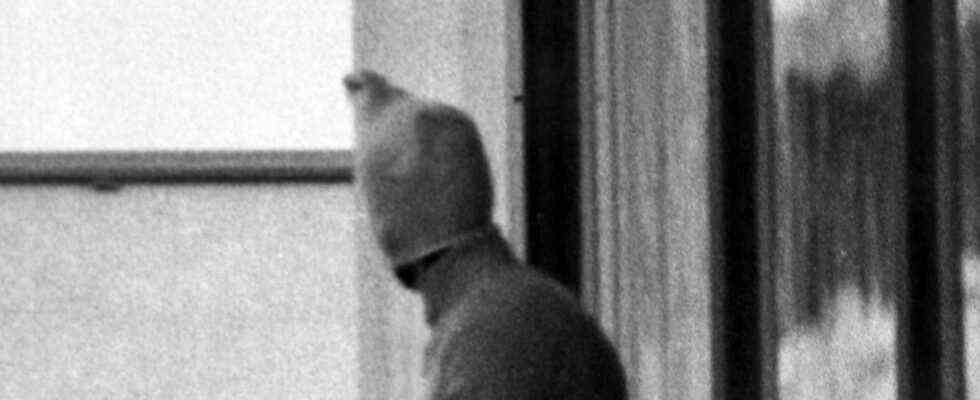They were celebrated as heroes. Hundreds of enthusiastic people gathered on the evening of October 29, 1972 at the airport of the Libyan capital Tripoli to welcome three men who had been released from German prisons hours earlier. In exchange for the crew and passengers of the Lufthansa plane Kielwho kidnapped a Palestinian terrorist squad that morning en route from Beirut to Ankara.
The three men were the surviving assassins of the Palestinian attack on the Israeli team at the 1972 Olympic Games in Munich, in which eleven Israelis and a German police officer were killed. In the unsuccessful rescue operation by the police at Fürstenfeldbruck airfield, five assassins were also killed.
The three Palestinians spent only 54 days in Bavarian prisons. When the hijackers requested their release, the German authorities complied with this request with remarkable speed; It almost seemed as if one were happy to get rid of the terrorists of the “Black September” movement.
They were flown from Munich to Zagreb, where the kidnapped Kiel had landed. From there it went to Tripoli, where the three terrorists gave a press conference at the airport. “We made sure our voices were heard,” boasted one of them. Then the trio went into hiding – with the help of the then Libyan head of state Muammar al-Gaddafi. He cheered the attack on the Israelis in Munich as enthusiastically as the Arab mass media.
The money is said to come from Gaddafi’s frozen accounts
Five decades later, these events and Gaddafi’s connections to the Palestinian terrorists are the basis for a claim for damages amounting to 110 million euros. 21 survivors of the eleven Israeli Olympians murdered in the attack in Munich are demanding this amount from the UN, ten million euros per victim. Ankie Spitzer, the Dutch-born widow of the Israeli fencing trainer Andrei Spitzer, who was murdered in Munich, confirmed the Süddeutsche Zeitung the compensation initiative.
The money should therefore not come from UN coffers, but from accounts that were frozen worldwide after Gaddafi’s death in 2011 and have since been administered by a UN body. Gaddafi and some minions had embezzled an estimated 200 billion euros, mainly in Libyan oil deals, and made it abroad via an opaque conglomerate of nested mailbox companies, as the “Panama Papers” proved, not least of all. Allegedly, seven billion euros of this should also be in Germany.
In order to underpin the demands of the survivors of the attack, the Israeli UN ambassador Gilad Erdan presented the relevant UN committee with documents that are supposed to prove Gaddafi’s support for the Olympic attack. “In recognition of the mass execution of Olympic athletes,” Erdan transferred five million US dollars to the then Palestinian leader Yasser Arafat, Erdan told the Dutch news portal NOS. In addition, some of the commando members entered Germany with forged Libyan passports.
The bereaved are asserting further evidence: the big welcome show in Tripoli for the three terrorists who were released, the help they provided afterwards, and information that at least some of the eight terrorists involved in the Olympic attack had been trained in Libya.
Gaddafi’s complicity is difficult to prove legally
Expert opinions differ on the chances of success of the compensation initiative. It will be difficult to legally prove that Gaddafi not only supported the attack, but was also actually one of the people behind it, admitted the Dutch human rights expert Tom Zwart, who supports the initiative. Historically, however, the involvement of the Libyan head of state has been proven.
As a precedent, the survivors point to the payment of 2.7 billion US dollars to the relatives of the victims of the Lockerbie attack in 1988. At that time, under pressure from the UN, Libya had paid ten million US dollars for every passenger and every member of the cast who stayed with the A PanAm machine was shot down over the Scottish town of Lockerbie. Gaddafi also supported this attack.
Ankie Spitzer and other relatives of the Munich victims had to fight for compensation from the Federal Republic, the Free State of Bavaria and the City of Munich for a long time. A few months after the attack, they received only one million US dollars as “humanitarian aid” through the international Red Cross. With this construct, the German authorities, whose security forces had grossly failed in 1972, wanted to avoid the impression of an admission of guilt. It was not until 2002 that the Germans transferred another three million euros to 34 surviving dependents.

